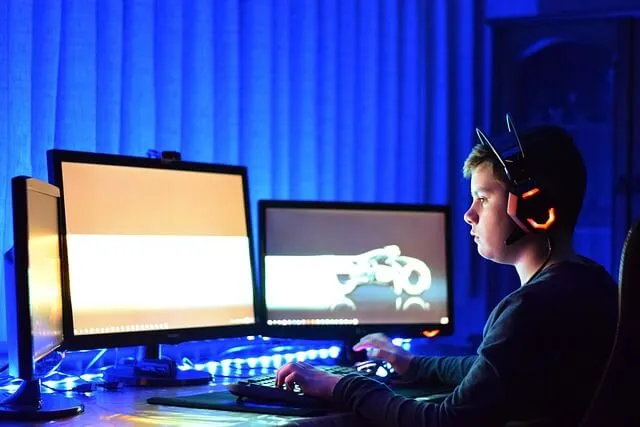If you’re wondering why games are sometimes CPU bound and not GPU, let me break it down in plain English, it’s mostly because your CPU’s the one calling the shots behind the scenes.
Even though we all love talking about graphics and those big fancy GPUs, the CPU is still the brain handling all the “thinking” your game needs. Stuff like AI, game logic, and loading up the next area all fall on your processor.
Some games are built to lean more on the CPU, especially open-world ones or games with a ton of background tasks. If your CPU’s slow or overwhelmed, your game can lag, even if your GPU is sitting there chilling.
So, before you go blaming your graphics card, it’s good to check whether the bottleneck’s actually your CPU.
Contents
What It Even Means When a Game Is CPU Bound

So when a game is CPU bound, it basically means your CPU is slowing things down, not your GPU. Even if your graphics card is top-notch, the frame rate won’t go any higher because your processor just can’t keep up.
It’s like trying to drive fast with the handbrake still on, your GPU wants to go, but your CPU says “hold up.” This usually happens when your game has a lot going on behind the scenes, like too many characters, calculations, or world-building stuff that all need the CPU.
Your frames-per-second (FPS) hit a wall because the processor is maxed out while your GPU is just cruising at half power. That’s when you know your game’s CPU-bound. And no, throwing a better GPU at it won’t magically fix things.
Why the CPU Ends Up Doing All the Heavy Lifting

I used to think the GPU did most of the hard work in games, but it turns out that the CPU handles way more than we give it credit for. The reason games become CPU bound is because the processor is in charge of everything else your GPU doesn’t touch.
We’re talking physics, AI movements, player inputs, saving, loading, literally all the behind-the-scenes magic. In big, open-world games or strategy games with lots of moving parts, the CPU gets overloaded fast. Plus, some games just aren’t coded well to take advantage of all your CPU cores.
So instead of spreading the load evenly, one or two cores get slammed, and your game starts stuttering or dropping frames. That’s why even with a killer GPU, a weak or overwhelmed CPU can totally mess things up.
A lot of folks forget that the CPU isn’t just one big chip, it’s made up of tons of tiny components crammed together on a wafer. The way these wafers are made plays a big role in how powerful the CPU turns out. If you’re curious, I wrote a quick post on why CPU wafers are round and not square, and honestly, it’s kind of cool to see how that shape matters in the big picture.
How You Can Tell If Your Game’s Stuck on the CPU

Alright, so how do you know if your game’s CPU bound? It’s actually easier than it sounds. If your GPU usage is low, like sitting at 50% or something, while your CPU’s working overtime, then yup, that’s a CPU bottleneck. You can check this using any system monitor while the game’s running.
Also, if your FPS doesn’t budge even after dropping your graphics settings, that’s another clue. Lowering graphics should help the GPU, but if nothing changes, it means the CPU is the one slowing things down.
I’ve had this happen in games like GTA V or older titles that don’t use many CPU cores well. Your GPU just ends up waiting around while the CPU tries to catch up. This concept is further detailed in the DirectX Developer Blog on CPU and GPU boundedness, which explains how the CPU can become a bottleneck in game performance.
FAQs
Why are some games more CPU bound than others?
Some games have heavy AI, physics, or open worlds that need tons of CPU work behind the scenes.
Can upgrading my GPU fix a CPU bottleneck?
Nope, if your CPU’s the problem, a better GPU won’t help much at all.
Do older games cause CPU bottlenecks more often?
Yeah, lots of older games don’t use multiple CPU cores well, which causes issues.
How do I reduce CPU bottlenecks in games?
Try closing background apps, tweaking game settings, or upgrading your CPU if needed.
Is it normal for the CPU to hit 100% while gaming?
It can happen, but if it’s always maxed out, it might be holding back your performance.
Conclusion
So yeah, games can be CPU bound even if your graphics card’s awesome. I’ve learned it the hard way, sometimes it’s not about how pretty the game looks, but how much thinking your CPU has to do. If your FPS won’t improve no matter what settings you change, now you know where to look.
Bryan Davis here—a total CPU nerd who lives for benchmarks, silicon specs, and deep dives. I break down tech stuff on my blog, simple and sharp.

